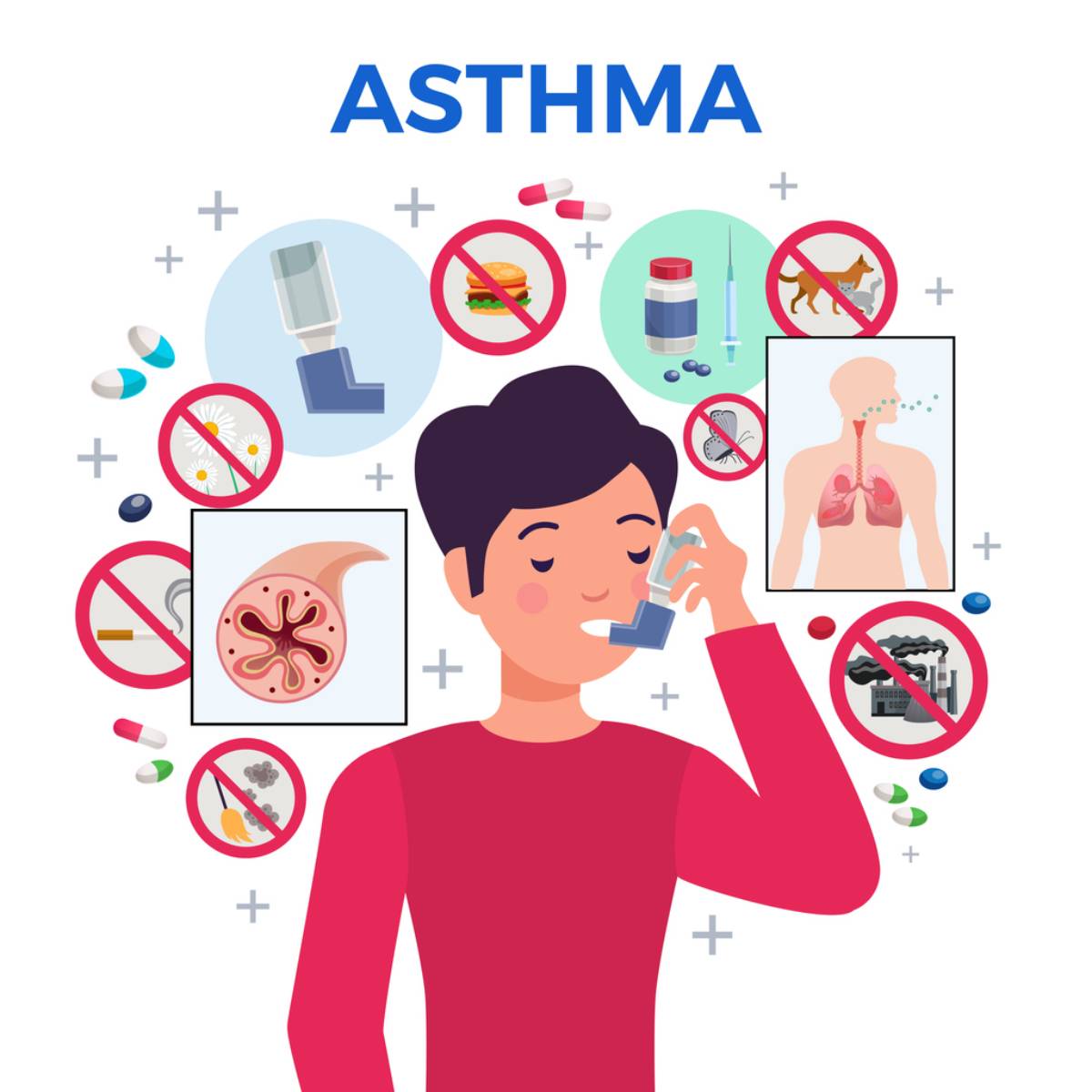Asthma can make you feel like you’re constantly battling for breath, but it doesn’t have to make you live in constant fear. This blog post will help you in understanding your triggers and how you can effectively manage these attacks.
Common Triggers
The first step to managing asthma attacks is identifying your triggers. These can vary from person to person, but some common ones include:
- Allergens: Dust mites, pollen, pet dander, and mold can all trigger the symptoms.
- Irritants: Smoke, air pollution, strong cleaning chemicals, and even cold air can irritate your airways.
- Medications: Certain medications, like aspirin, can trigger asthma in some people.
- Exercise: Exercise-induced asthma (EIA) is a common issue. Don’t avoid exercise altogether, but talk to your doctor about a pre-workout inhaler.
- Stress: Strong emotions can worsen symptoms. Relaxation techniques like deep breathing and meditation can be helpful.
Living with Asthma
- Trigger Avoidance: Minimize exposure to your identified triggers. Invest in air purifiers and allergy-proof bedding if needed.
- Medication Adherence: Take your daily medications exactly as prescribed, even when you feel well. Consistent use is key to preventing attacks.
- Develop a Relaxation Routine: Find healthy ways to manage stress, such as yoga, meditation, or spending time in nature.
- Stay Hydrated: Drinking plenty of water helps thin mucus and keeps your airways clear.
- Regular Doctor Visits: Schedule regular checkups with your doctor to monitor your asthma and adjust your plan as needed.
If you experience a severe asthma attack with difficulty breathing even after using your quick-relief inhaler, seek immediate medical attention. Call us at 09155556030, 09155556040.






